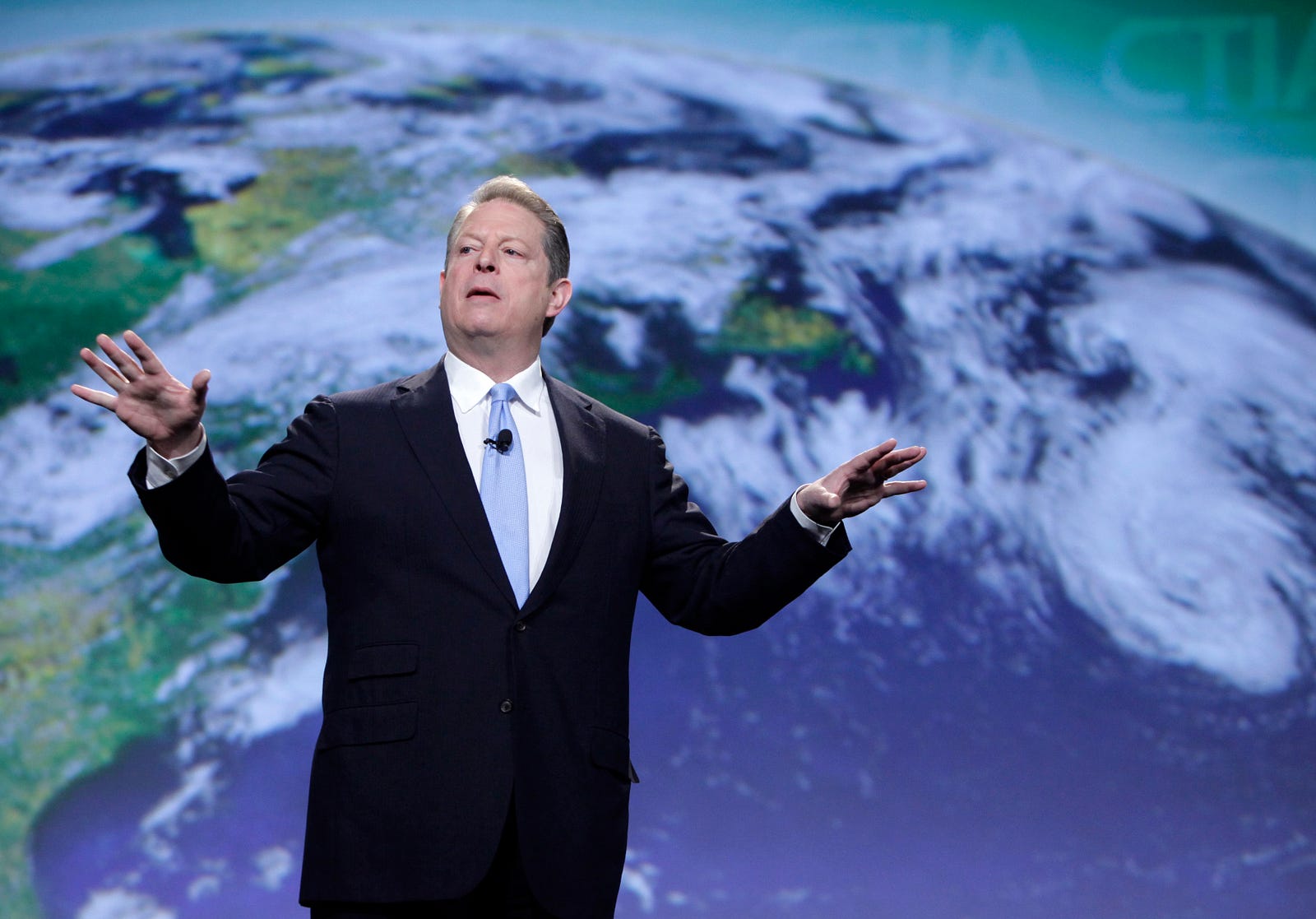CLINTON CAMPAIGN TAPS AL GORE TO HELP SOLVE THEIR MILLENNIAL PROBLEM

Former vice president Al Gore knows a thing or two about climate change. He also happens to have had a very personal — and public — experience with the power of third party voters.
So when Hillary Clinton’s presidential campaign needed someone to help them galvanize Millennial support — a demographic the Democratic candidate has struggled to win over, and one that tends to be especially engaged with climate change — it makes sense they would turn to Gore. Since losing the 2000 presidential election to George W. Bush, Gore has become a stalwart advocate for climate action, most notably with the 2006 documentary An Inconvenient Truth.
But will having Gore’s help be enough to woo young environmentalists?
“Climate is a huge motivator for young voters.”
Sarah Burton, national PAC director for the Sierra Club, praised the move, arguing that the more people that talk about climate change, the more engaged young voters are likely to become.
“Climate is a huge motivator for young voters,” Burton said. “I think that it is a good move. I think people like Gore and others can be really effective, because the more people that are talking about an issue the better.”
Still, some are skeptical that Gore’s support will be enough for Clinton to engage young voters worried about the climate crisis. Many young voters are too young to have voted in the 2000 election, and some might not even remember the role Ralph Nader played in tipping the swing state of Florida in Bush’s favor.
“Millennials are smart, sophisticated voters who are unlikely to be swayed by Al Gore’s presence alone — and some of them were toddlers when he was last on the public stage — but they will respond to an authentic commitment to strong climate policy,” RL Miller, president of ClimateHawks Vote, told ThinkProgress. “The best way for Clinton to connect with voters on climate is not to calculate which surrogate can best deliver a message, but rather to deliver a strong message — whether by Gore or someone else. That means announcing her opposition to the Dakota Access Pipeline and other new fossil fuel infrastructure.”
Clinton has faced some criticism from the left — especially among climate activists — for pivoting away from climate change after she sealed the party nomination this summer. According to a Guardian report, Clinton only mentioned climate change in eight out of 38 speeches given between July and September.
In contrast, her primary opponent, Sen. Bernie Sanders (I-VT), has been a visible champion of climate action, endorsing legislation that would put an end to new leases for fossil fuel extraction on public lands, and speaking publicly in support of protesters challenging the Dakota Access Pipeline. Clinton has yet to publicly take a position on the controversial pipeline, something progressive groups have pressed for in recent weeks. She also faced criticism for failing to mention climate change in an online pitch to Millennials published in Mic.
“The best way for Clinton to connect with voters on climate is not to calculate which surrogate can best deliver a message, but rather to deliver a strong message.”
“On an aggregate affect, the more seriously that the Clinton campaign takes climate change, the more that voters that care about climate will be drawn to her campaign,” Brad Johnson, executive director of ClimateHawks Vote’s political action arm, told ThinkProgress. “This is what motivated a tremendous amount of Bernie Sanders’ support. It’s certainly something that people would like Secretary Clinton to rise to the occasion and address.”
In recent weeks, Clinton seems to have adjusted her strategy, mentioning climate change without prompting in the first presidential debate, which allowed her to outline her plan for creating jobs through renewable energy. (Donald Trump, for his part, used his time during the debate to deny that he ever called climate change a hoax — a claim he has made multiple times).
Equally important as trusted surrogates, however, is how Clinton responds to climate-related events, like the 1-in-550 year flood that hit Louisiana this summer, or Hurricane Matthew, that is currently on track to hit Florida this week. ClimateHawk’s Johnson spoke of how Superstorm Sandy had an impact on climate votes in the 2012 election, by showing voters how each candidate responded to a real-time consequence of climate pollution.
“The most effective advocate on the importance of climate change through the election in 2012 wasn’t any of the advocacy organizations or surrogates, it was climate change itself. It was Superstorm Sandy,” Johnson said. “Both in focusing voters minds on the stakes of the issue and also on focusing political and media leaders on the importance and nature and reality of the situation. That’s going to continue to be true in this election.”







Follow Us!